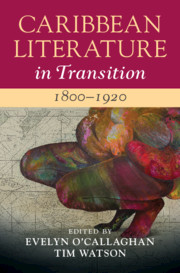
- Cited by 1
-
Cited byCrossref Citations
This Book has been cited by the following publications. This list is generated based on data provided by Crossref.
Gall, Adam Manzo, Kerry Mcneill, Dougal Miller, Benjamin Naruse, Cheryl Narumi Niblett, Michael Nivesjö, Sanja Sharrad, Paul García Zarranz, Libe and Zirra, Maria 2023. XVIINew Literatures. The Year's Work in English Studies,
- Publisher:
- Cambridge University Press
- Online publication date:
- December 2020
- Print publication year:
- 2021
- Online ISBN:
- 9781108647830


